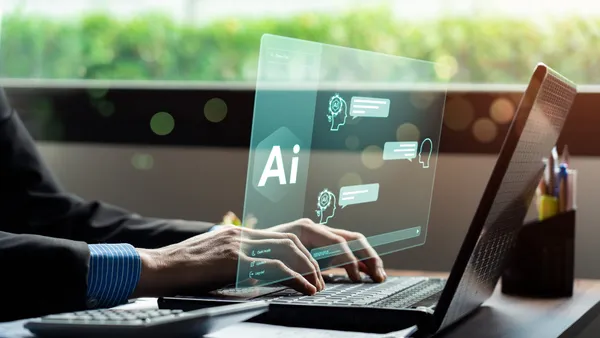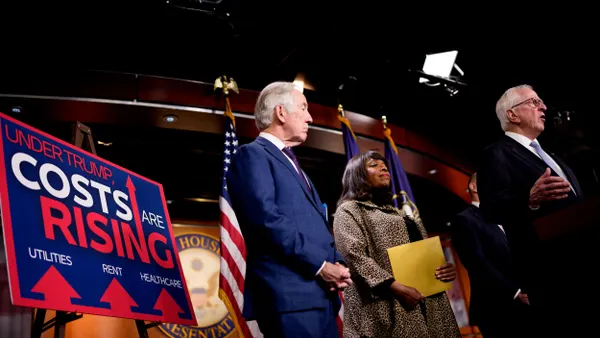Dive Brief:
- As many as 88% of state economic and workforce development leaders view artificial intelligence as important for their economy and workforce, but only 6% of respondents reported their state had a defined plan to monitor and act on AI’s economic impact, according to a new survey by Boston Consulting Group.
- The survey also found that 55% of states have leadership ready to oversee strategic initiatives involving AI and have a taskforce in place to address AI’s impact on their state’s economy.
- The lack of a cohesive economic strategy was cited by 39% as a barrier to pursuing AI technology, while 27% blame low public trust and slow business adoption for hampering major AI transformations in their states.
Dive Insight:
AI is expected to have a major impact on the U.S. workforce, including the public sector. Internally, more than 80% of state chief information officers say their employees are already using AI daily, largely for improving workplace efficiency.
Cities like Dallas and San Francisco have also embraced AI in their respective workforces.
Altogether, AI is expected to impact around 40% of all work hours, according to BCG, as the new technology takes over repetitive digital tasks. As a consequence, three-fifths of employees will require upskilling for AI-enabled positions over the next two to five years, according to BCG.
Mississippi is one state that has taken proactive steps toward AI education, offering residents workshops and free courses through partner colleges and public schools, according to BCG. The state’s AI talent accelerator program awarded $9.1 million in grants to universities to expand AI programs.
San Jose, California, has also worked to be at the forefront of the AI economy. In August, the city announced a city-run AI incentive grant program to support early-stage AI companies focused on addressing issues such as maternal health and food waste. Grant recipients are awarded up to $50,000.
“Some of society’s biggest challenges are also great opportunities for innovation and job creation,” San Jose Mayor Matt Mahan said in a statement. “San Jose’s first-in-the-nation AI grant program is funding local startups building businesses that make our city stronger, safer and more vibrant for everyone.”
The city also launched an AI upskilling program to train city staff to use AI “responsibly and effectively.” It plans to expand the program to more than 1,000 city employees in 2026.
In its report, BCG suggests five steps that state governments can take to upskill their workforce, including integrating AI learning into student journeys and expanding on-demand training for incumbent workers. The firm also suggests creating public access points for AI, such as terminals and learning hubs in libraries and community centers, offering specialized training for experts and aligning upskilling initiatives with capital investment.













